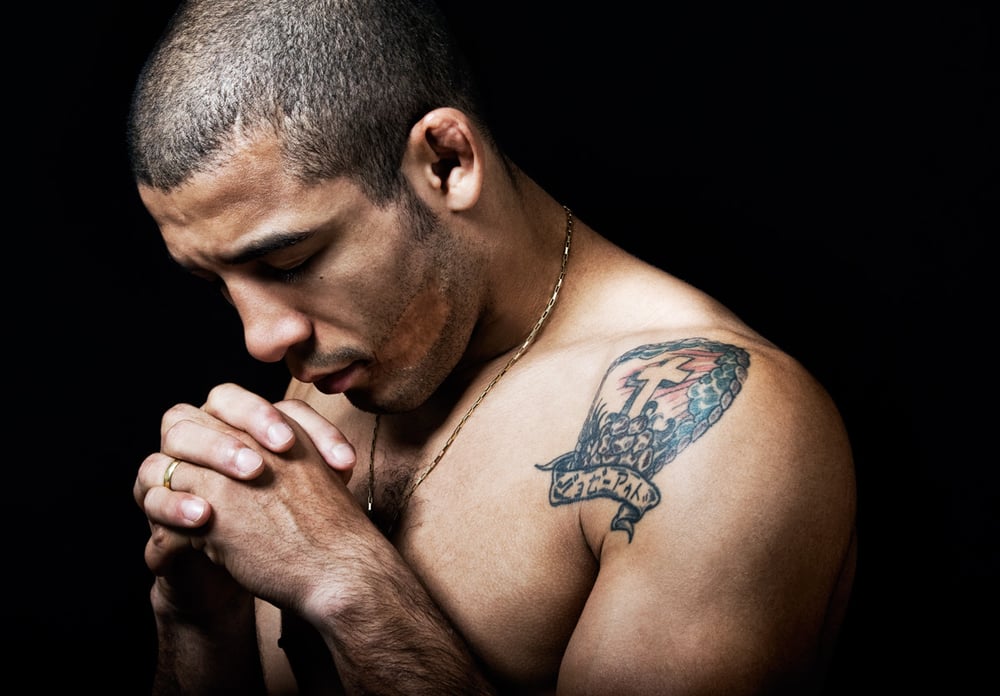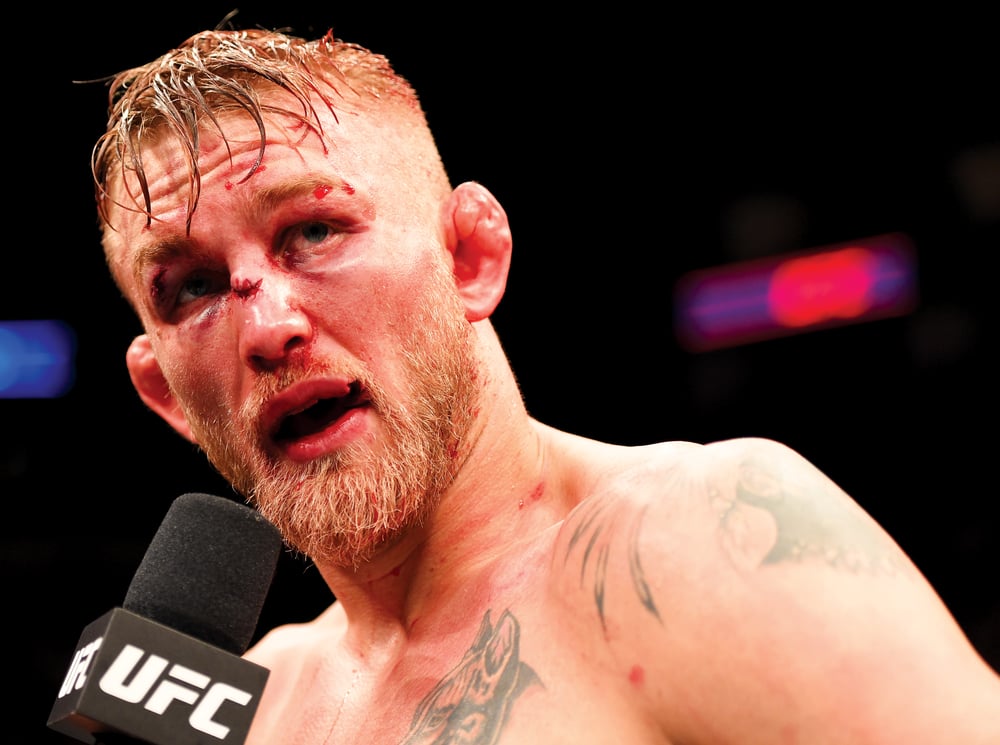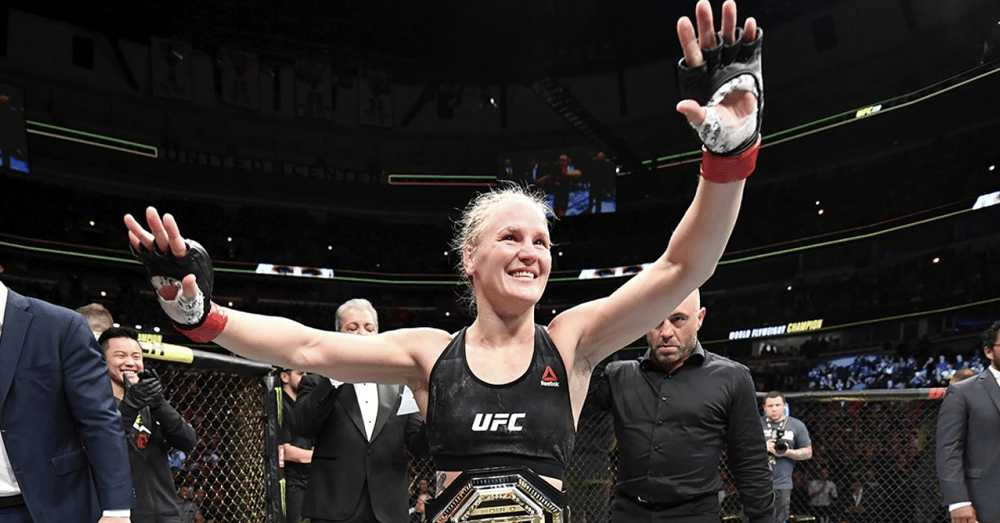
Issue 211
November 2024
Before championship belts were on the line, the world's greatest fighters were locked in their own battles. Isaac Barnett delves into the gritty and inspiring MMA origin stories that forged these warriors into the legends they are today.

JOSE ALDO JR - EARNING THE CROWN
Jose Aldo Jr. was born on September 9, 1986, in Manaus, Brazil, and was raised by his father, Jose Aldo Sr., and his mother, Rocilene Souza. The harsh environment of the Brazilian favelas deeply shaped Aldo Jr’s poverty-stricken childhood. As a child, Aldo Jr was dropped onto a barbeque, which left his face burnt and scarred, which still shows on his left cheek today. Although his parents did everything to give him the best opportunities, there was no masking the stress of their many struggles. His father also battled alcohol abuse, which drove his mother away when Aldo Jr was 14. When speaking to FIGHT! Magazine, Aldo Jr, had plenty of insights to share on this matter.
“My father had a drinking problem, and sometimes he’d get violent at home,” he said. “I was 14 when they separated. That morning, my mother was crying a lot. She was trying to say goodbye, but we were kids and didn’t understand.”
Like many children in Brazil, Aldo Jr fell in love with sports at a young age to help escape the hardships of the Favela life. He adored football and dreamed of playing for Flamengo at Maracana. However, he knew the likelihood of his dream coming true was very slim, so he began working as a bricklayer. He began training in Capoeira to stop bullies from targeting him, and this is where he started to hone his now signature kicking game. While riding home from the gym, he began training at a jiu-jitsu gym and a kinship with the sport. Marcio Pontes, a jiu-jitsu black belt and the gym owner, knew Aldo’s financial situation was desperate, so he offered him the opportunity to train for free.
"I wanted to train in jiu-jitsu instead of Capoeira because the mat was soft, which was better than training Capoeira on the hard floor,” explained Aldo. “I started reading jiu-jitsu magazines, reading about the world champions, and becoming one of them became my goal.”
He began competing in tournaments, which saw him travel to Rio de Janeiro, a city he fell in love with. Before long, he’d saved enough to move there, where he lived in a jiu-jitsu gym.
"At the same time I used the jiu-jitsu mat to work, it also became my bed,” said Aldo. "That's where we slept. It was a huge bed. It wasn't so soft, but it wasn't hard either. But it's part of the game. That's the price I had to pay in the beginning. That made me grow."
After winning the CBJJO World Cup, Aldo Jr. decided it was time for a new challenge, so he switched to MMA. He had his first fight when he was 17, defeating his opponent after 16 seconds in the first round. He rose from the ashes of hardship to turn his scars into symbols of resilience.

ALEXANDER GUSTAFSSON - A FRESH START
Alexander Gustafsson was born on January 15, 1987, and grew up in Arboga, a small town in Sweden, with his mother, stepfather, and four younger sisters. He had a close relationship with his biological father, but his dad lived in another city and struggled with alcohol abuse, making it difficult for Gustafsson to see him. His mother named him Alex after Alexander the Great, one of ancient history's most famous Greek kings. As a kid, he had trouble fitting in because he had excess energy that often got him into trouble, but football, ice hockey, and bandy seemed to scratch that itch until he discovered boxing at 10. Around this time, he also met a future two-division boxing world champion, Badou Jack. The two became training partners and great friends throughout their amateur days. Gustafsson still struggled to escape trouble despite being a promising prospect within the Swedish amateur set-up. He got into a lot of fights outside of the gym, and his wrongdoings caught up with him when he was convicted of assault at 15. The following year, he won the junior national championship in boxing, but two years later, when he was 18, he was sentenced to prison for aggravated assault during a night out. Gustafsson explained how this took away his boxing career.
“I cannot defend it in any way,” he said. “I am ashamed of it. The time in prison? It was hard. I was young. I was stupid. I left a secure home for a quite precarious existence. There were some circumstances when I grew up, such as fights in the town. It lasted a few years, and then I moved from Arboga to Gothenburg to escape all that.”
Once he was released from prison, he knew he had to change his ways. He entered MMA and became engulfed by his gym’s atmosphere.
"I realized quickly that MMA was something I wanted to do and that what I had been doing previously was not sustainable. It was a relief, a weight lifted from my shoulders. Not only that. I saw how my parents, my siblings, and my grandmother were. People who love me. Those who have always been there and supported me, even during the tough times. Now, they saw that I had been given structure. I came home with a smile on my face. I had found a calling in life. It has just grown and grown, becoming larger and larger. Now, I'm an athlete. Now I live MMA."
From a troubled kid to Sweden's greatest MMA icon, Alexander Gustafsson proves that even the hardest hits in life can set you up for the ultimate comeback.

VALENTINA SHEVCHENKO - THE VERSATILE ASSASSIN
Valentina Shevchenko was born on March 7, 1988, in Frunze, Kirghiz SSR, Soviet Union, which some would argue was the peak of the Cold War. During the 1920s, the Soviets sent Russians, like Shevchenko’s grandmother, to industrialize these regions. Her family had an armed forces history, with her father and grandfather serving as soldiers, but her mother regularly broke law behind closed doors, so she couldn’t join them. Her crime: karate. The Soviets banned karate in 1981 because they believed too many citizens prioritized it over boxing, sambo, and judo, which hurt the Soviet Olympic teams. Her mother risked a five-year prison sentence for her actions, but she was never officially caught, and her skills inspired Shevchenko and her sister, Antonia, who is now a UFC fighter. When Valentina was five, she began training in taekwondo, which began her lifelong obsession with martial arts and combat sports.
“It’s everything to us,” she explains. “It’s more than just a sport, it is more than just a career, it’s everything. The more time you spend doing something, the more you can understand it, the deeper it feels. By the end, you understand that the principles can be in every detail, and I think the more experience you have, the more you can understand the world.”
She trained in karate for many years before transitioning to Muay Thai Kickboxing when she was 12 which is when she met her longtime trainer, Pavel Fedotov, who has been instrumental in her MMA career.
“Pavel was and is the best coach in Kyrgyzstan,” she said. “Everybody knew him, so my mom knew that if someone was going to train her daughters, then it had to be Pavel. Pavel has this idea that his fighters must be universal and dominate all techniques. This is his best quality. He knows many different sports and teaches you the best techniques.”
Her first fight was against a 22-year-old, who she knocked out and earned the name ‘The Bullet, given to her by Fedotov because of her incredible speed in that bout.
“This name is my talisman,” she says. “My symbol. I actually think my passion for firearms was born at the same time Pavel gave me this name.”
She traveled a lot, competing across multiple countries in Muay Thai, kickboxing, boxing, and MMA, becoming both an amateur and a professional champion in each discipline at some point. Her primary sport was Muay Thai, where she became an eight-time I.F.M.A. champion. She had her first MMA bout in 2003, defeating her opponent by TKO in round two. Her MMA continued along with her other endeavors, and it wasn’t until 12 years after her debut that she joined the UFC in 2015. From a Soviet kid whose mom broke the law with karate kicks to an eight-time world champion firing off like a human weapon, she was someone who turned rebellion into knockouts.










